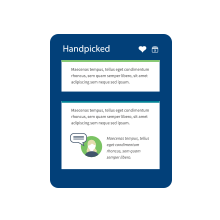What is the CIS scheme and what does this mean for you?

The Construction Industry Scheme (CIS) was set up by HM Revenue and Customs as a way to minimise tax evasion by deducting tax from subcontractors at source. CIS doesn’t apply to employed members of staff, as employee tax is deducted under the PAYE scheme.
If you operate in the construction industry, CIS can be a complex area of business to negotiate. If you’re a contractor, determining the status of the people you pay for carrying out construction work – whether they’re a subcontractor, or should in fact be regarded as an employee – can be particularly challenging.
How does CIS work for contractors?
If you pay subcontractors to complete construction work, or spend more than £1 million a year (on average) on construction in any given period of three years, you’ll be regarded as a contractor under CIS.
When you pay your subcontractors you’ll need to ‘verify’ them, which essentially means checking that they’ve registered with HMRC, and this can be done online. If they’ve registered for CIS, you’ll need to deduct tax at a rate of 20%, or 30% if they’re not part of the scheme.
Keeping track of your payments and tax deductions
Good record-keeping is a key issue as a contractor under CIS. You’ll need to record the following information:
- Gross amount paid to your subcontractor
- Amount of tax deducted
- Cost of materials
- Verification number of the subcontractor (if applicable)
You should also provide your subcontractor with a written statement if you’ve deducted tax under CIS.
Business, turnover, and compliance tests
If the subcontractor has successfully applied for ‘gross payment’ status, no tax will be deducted and they’ll deal with their own tax payments at the end of the tax year. To receive payments with no tax deducted at source, the subcontractor needs to pass three tests as follows
Business
Construction work is UK-based, and the business is run using a bank account.
Turnover
An individual subcontractor’s annual turnover is at least £30,000, with a higher minimum requirement for partnerships and companies.
Compliance
The subcontractor has no outstanding tax returns or payments due to HMRC.
If the subcontractor passes these three tests, which are repeated each year, they may be able to receive gross payments from their contractor.
What are the requirements for subcontractors under CIS?
If you’re a subcontractor, although there’s no obligation for you to be part of the Construction Industry Scheme, significant tax savings can be made by registering. There’s a requirement to keep proper records if you do register, so that an accurate tax return can be filed which also shows the direct cost of your materials.
You must provide your contractor with correct information so that your status can be verified. You can be fined up to £3,000 for making false declarations in this respect, with penalties also being charged for failing to provide the appropriate records when necessary.
Potential issues regarding CIS
A particular concern for some contractors is deciding whether workers should be classed as employed or self-employed - a crucial aspect when applying the scheme. With considerable penalties being charged for inaccurate or late payments and CIS returns, it’s vital to ensure your records are accurate and up-to-date. A fine of £100 will be applied by HMRC if you miss a CIS return deadline by one day.
If you work in construction and aren’t sure whether you should register for the Construction Industry Scheme, or need more information about your obligations, a professional adviser will provide the guidance and support you need.
Handpicked Accountants can put you in touch with an accountant in your area who has CIS expertise. We work with accountants around the country, and provide referrals based on longstanding working relationships. We recommend accountants and accountancy practices using our extensive knowledge of their specialities and working practices.







